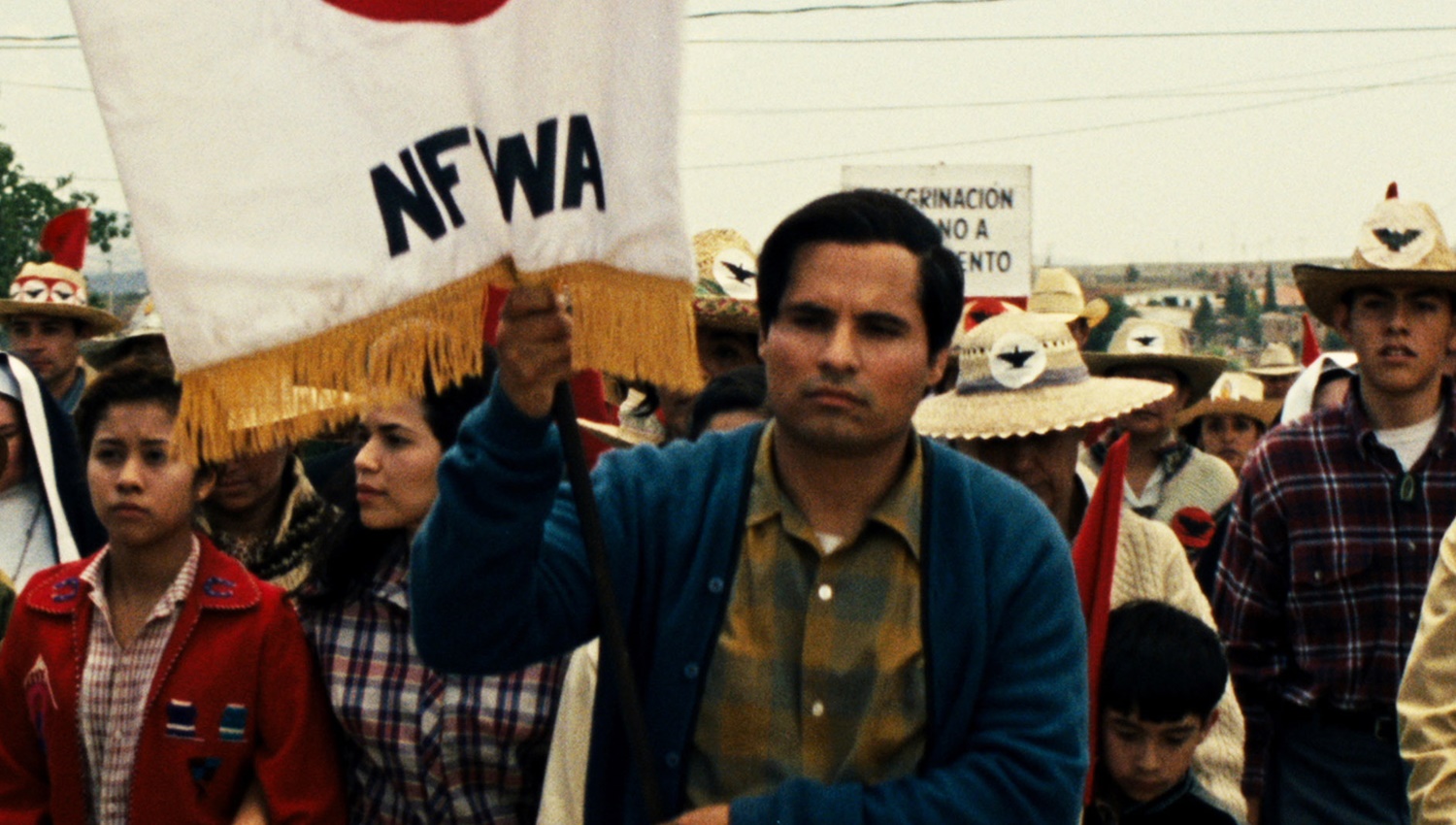
Cesar Chavez
Dustin Chase
I remember first seeing actor Diego Luna in the astonishing Y tu Mama Tambien. His career and interest in film has developed over the years and he is now presenting his sophomore directorial feature and his biggest film yet. He worked for years to get this film made; having to seek funding in Mexico, Luna and Malkovich also serve as producers. Tackling the true story of one American farm worker striking and working towards labor rights has proved a labor of love, as seen at the emotional premiere of the film at SXSW. Luna’s direction is very standardized and straightforward. Clearly, the working with Alfonso Cuaron (now the first Mexican to win best director at the Academy Awards) has not influenced the actor turned director.
Already a force for the immigration movement, Cesar Chavez (Pena) moves his wife (Ferrara) and eight children to the town of Delano (central California) in 1962, where he would plant roots and get back into the fields trying to create strength in numbers. Chavez wanted to stop $2 dollar a day wages and the mistreatment of both Filipino and Mexican farm workers. The initial resistance from farmers was brutal, as they had the local police on their side. With the aid of Bobby Kennedy and growing numbers and stunts like fasting, Chavez illustrates the importance of what they are doing for a future generation and simply improving the quality of life.
Never really set off a fire for me the way something like Fruitvale Station, Ghosts of Mississippi or other racially motived pictures have.
Luna isn’t interested in obtuse camera angles or memorable cinematography; it’s a linear story told with emotion and backbone. Pena (Crash/American Hustle) has continuously delivered great work his entire career. He chooses roles that allow him to be diverse in a wide variety of genres. Unfortunately, the script never offers Chavez that emotional high note that I, for one, felt it needed. The movie is stirring and informative, but those two things you already expect from a biopic for a historical character.
Ferrara gets a few memorable scenes as Mrs. Chavez, both when she is taken to prison and in a few other moments where she becomes the more hostile parenting figure. I felt Dawson’s talents in the film were wasted. While her character is important to Chavez’s work, she is underutilized as an actress. Perhaps I was just expecting more, but this film never really set off a fire for me the way something like Fruitvale Station, Ghosts of Mississippi or other racially motived pictures have. Luna is still young, and while his interviews and passion for the project and the movement clearly shows through as he crosses the country promoting it, I see less of that on screen.
Final Thought
An admirable, although standardized, sophomore effort from actor turned director Luna.
